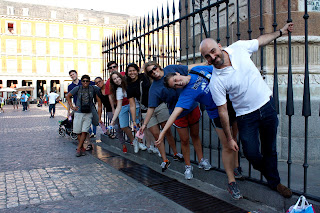Por Virginia Burke
University of Mississipi
Our Legal Studies excursion to The Hague was a trip filled with interesting meetings and sights. Of particular interest for me was the Palacio de Paz or Peace Palace. The Peace Palace is the home of the International Court of Justice or ICJ a court established by the United Nations to resolve disputes between nations. The ICJ is especially interesting because the parties have to agree to appear before the court and even have the right to set certain rules and regulations to govern the court proceedings. One of the most interesting rights that a nation has in this process is to request a judge from their own nation if a judge from their nation is not a judge of the court.
The idea of arbitration in this form was a very new concept at the time of the palace’s construction in the early 1900s. The idea arose from Czar Nicholas II’s hope for peace in an era where Russia could not continue building its army. From various peace conferences the idea for a central location to work toward world peace was developed. With donations from various governments, organizations, and wealthy partrons the Palace became a reality in 1907. One of the largest donations was given by Andrew Carnegie, while doubtful about the ability of arbitration to settle disputes among states was willing to support the idea if a library was included. That library is now the largest library for international law in the world.
Visiting the Palace of Peace was certainly a time to give thought to the idea of arbitration. The success of the method has certainly been proven through the ICJ in many different cases. Since the concept and field of international law is relatively new this place is certainly at the cutting edge and learning more about this court has definitely helped to further my interest in international law.









